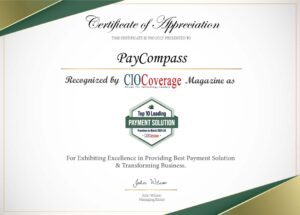 For most small and mid-sized merchants, payments are a balancing act. They need money to move quickly but also safely, with little to no room for error. Every delay and dispute eats into time that could be spent running the business itself. Somewhere between the promises of instant processing and the reality of bank queues, a gap opened. PayCompass grew into that gap by building systems that could keep pace with how businesses operate.
For most small and mid-sized merchants, payments are a balancing act. They need money to move quickly but also safely, with little to no room for error. Every delay and dispute eats into time that could be spent running the business itself. Somewhere between the promises of instant processing and the reality of bank queues, a gap opened. PayCompass grew into that gap by building systems that could keep pace with how businesses operate.
The company runs a network that now supports more than six thousand merchants across the country. Together, those merchants process over five billion dollars a year through programs tailored to their risk levels, size, and transaction patterns. The scale looks impressive, but what stands out is how steady it feels. Payments arrive when expected and cash flow evens out. Moreover, businesses stay with the same processor year after year because nothing suddenly breaks.
At its core, PayCompass focuses on dependability. It offers merchant fraud protection, chargeback management, and real-time monitoring. All of these fit seamlessly into daily operations. Each service is meant to keep revenue secure without slowing transactions. High-risk industries rely on that balance most; sectors like hospitality, automotive repair, and liquor retail face strict rules and volatile volumes that discourage traditional processors. PayCompass built expertise where others withdrew.
That same discipline runs through its structure. More than three hundred agents work across the United States, only to keep support close to the merchants they serve. Instead of outsourcing customer relationships to offshore centers, the company treats each account as a long-term commitment. Many of those relationships have lasted for over a decade, surviving market swings and technology shifts. It is a slow, steady way to grow, but it builds something marketing can’t manufacture: trust.
“Payment systems fail when they stop feeling accountable. Our job is to keep merchants from ever feeling left behind in that process. What keeps them with us is the confidence that someone is always paying attention.” — Justin Volrath, Founder & CEO
Product development follows the same pattern. New tools are introduced when they prove essential, not simply to expand the catalog. Multi-currency processing opened international markets for established merchants. Virtual card issuing gave clients safer ways to manage supplier payments. Each addition feels incremental, yet over time those small steps have reconstructed PayCompass’ operations.
 Internally, teams talk about progress as maintenance rather than motion. They look for ways to shorten settlement times, simplify statements, and cut hidden costs. The team has never focused on disruption or reinvention. It’s always prioritized stability, which can survive constant change. That approach has made PayCompass a quiet fixture in an industry known for noise.
Internally, teams talk about progress as maintenance rather than motion. They look for ways to shorten settlement times, simplify statements, and cut hidden costs. The team has never focused on disruption or reinvention. It’s always prioritized stability, which can survive constant change. That approach has made PayCompass a quiet fixture in an industry known for noise.
The company’s position today reflects a simple truth: payments don’t need to be dramatic to be effective. The market is already crowded with startups chasing attention. Here, PayCompass built loyalty by keeping its work predictable. Merchants know what to expect and partners know who will answer when something needs fixing. Reliability became the product, and that’s what has kept the network growing long after others moved on to the next idea.
